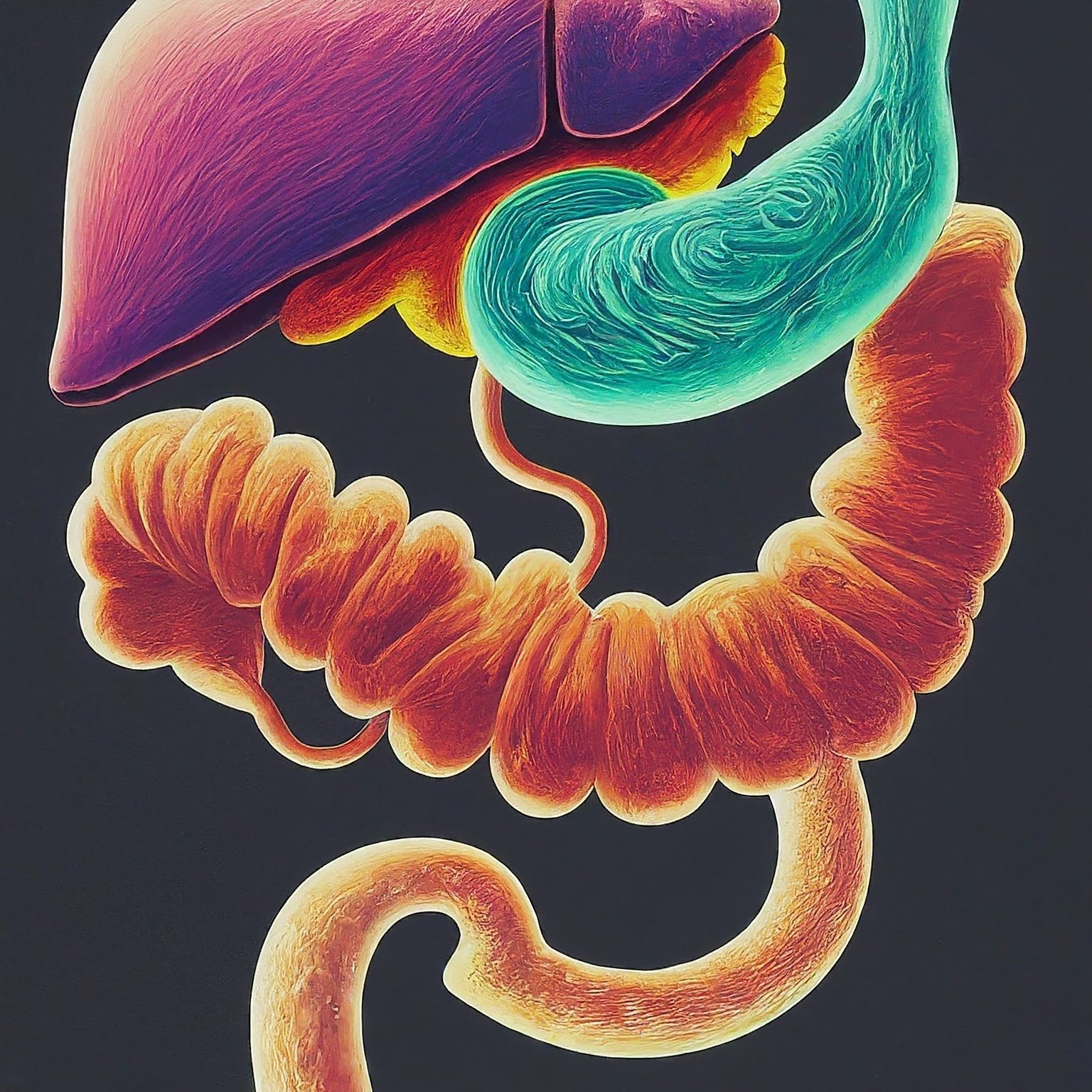10 Healing Rituals to Improve Your Digestive Health

Are you looking to improve your digestive health and overall well-being? Look no further than these 10 healing rituals designed to support a healthy gut. From mindful eating practices to herbal remedies, incorporating these rituals into your daily routine can help alleviate digestive issues and promote a happier, healthier gut. Read on to discover how you can take control of your digestive health starting today.
Table of Contents
Table of Contents
1. Mindful Eating Practices
Chew Your Food Thoroughly
One of the simplest yet most effective mindful eating practices is to chew your food thoroughly. Chewing your food well not only aids in digestion but also allows your body to better absorb nutrients from the food you eat.
Eat in a Calm Environment
Creating a calm and peaceful environment while eating can greatly benefit your digestive health. Avoid distractions such as watching TV or using your phone, and instead focus on the act of eating. This can help reduce stress levels and improve digestion.
Practice Mindful Eating
Mindful eating involves being fully present and aware of your eating experience. Pay attention to the colors, textures, and flavors of your food. Chew slowly and savor each bite. This practice can help prevent overeating and promote better digestion.
2. Herbal Remedies and Supplements as Healing Rituals
Peppermint Tea
Peppermint tea is known for its soothing properties and ability to relieve digestive issues such as bloating, gas, and indigestion. The menthol in peppermint helps to relax the muscles in the digestive tract, promoting better digestion. Drinking a cup of peppermint tea after meals can help alleviate discomfort and improve overall digestive health.
Ginger Supplements
Ginger has long been used as a natural remedy for various digestive ailments. Ginger supplements can help stimulate digestion, reduce inflammation in the gut, and relieve symptoms of nausea and vomiting. Incorporating ginger supplements into your daily routine can help support a healthy digestive system and promote better nutrient absorption.
Probiotics
Probiotics are live bacteria and yeasts that are beneficial for digestive health. These “good” bacteria help maintain a healthy balance in the gut microbiome, which is essential for proper digestion and nutrient absorption. Including probiotic-rich foods such as yogurt, kefir, sauerkraut, and kimchi in your diet can help improve your gut health and alleviate digestive issues. Alternatively, you can also take probiotic supplements to ensure you are getting enough beneficial bacteria to support your digestive system.
3. Stress-Reducing Techniques
Incorporating stress-reducing techniques into your daily routine can have a significant impact on improving your digestive health. Chronic stress has been linked to digestive issues such as bloating, indigestion, and even irritable bowel syndrome. By practicing mindfulness and relaxation techniques, you can help alleviate stress and promote better digestion.
Meditation
Meditation is a powerful tool for reducing stress and promoting relaxation. By taking a few minutes each day to sit quietly and focus on your breath, you can calm your mind and body, allowing for better digestion. Research has shown that regular meditation can lower levels of cortisol, the stress hormone, which can in turn improve your digestive function.
Yoga
Yoga combines physical postures, breathing techniques, and meditation to help reduce stress and promote overall well-being. Certain yoga poses are specifically designed to massage the internal organs and stimulate digestion. By incorporating yoga into your daily routine, you can improve your digestive health while also benefiting your mental and emotional well-being.
Deep Breathing Exercises
Deep breathing exercises, also known as diaphragmatic breathing, can help activate the body’s relaxation response and reduce stress levels. By focusing on slow, deep breaths that expand your diaphragm, you can lower your heart rate and calm your nervous system. This can have a positive impact on your digestive system, as stress can often lead to digestive issues such as bloating and stomach pain. Try incorporating deep breathing exercises into your daily routine to support better digestion.
4. Regular Physical Activity
In addition to incorporating healing rituals into your daily routine, regular physical activity is crucial for improving digestive health. Exercise helps to stimulate the digestive system, promote regular bowel movements, and reduce bloating and discomfort. Here are three types of exercises that can benefit your digestive health:Aerobic Exercise
Aerobic exercise, such as running, biking, or swimming, can help to increase blood flow to the digestive tract, which can aid in digestion. This type of exercise also helps to reduce stress, which is known to negatively impact digestive health.
Strength Training
Strength training exercises, like weightlifting or bodyweight exercises, can help to strengthen the muscles around the abdomen, which can improve digestion and reduce symptoms of indigestion. Building muscle mass also boosts metabolism, which can aid in overall digestive health.
Stretching
Stretching exercises, such as yoga or Pilates, can help to relax the muscles in the abdomen and promote better digestion. These exercises can also help to reduce stress and improve posture, both of which can have a positive impact on digestive health. Incorporating stretching into your daily routine can help to alleviate digestive issues and improve overall well-being.
5. Adequate Hydration
Maintaining adequate hydration is crucial for improving digestive health. Here are some tips to help you stay hydrated:
Drink Plenty of Water
Water is essential for digestion as it helps break down food and absorb nutrients. Aim to drink at least 8 glasses of water per day to keep your digestive system running smoothly.
Herbal Teas
Herbal teas such as peppermint, ginger, and chamomile can help soothe digestive issues like bloating and indigestion. These teas also provide hydration while offering additional digestive benefits.
Electrolyte-Rich Beverages
Electrolyte-rich beverages like coconut water or sports drinks can help replenish electrolytes lost during digestion. These beverages are especially beneficial if you have been experiencing diarrhea or vomiting, as they can help restore balance and hydration levels in your body.
6. Elimination Diet
When it comes to improving digestive health, one effective method is through an elimination diet. This process involves removing certain foods from your diet for a period of time to identify any triggers that may be causing digestive issues. Here are some steps to follow when implementing an elimination diet:
Identify Trigger Foods
The first step in an elimination diet is to identify potential trigger foods that may be causing digestive discomfort. Common trigger foods include dairy, gluten, soy, and certain types of nuts. By eliminating these foods one at a time, you can pinpoint which ones are causing issues.
Food Journaling
Keeping a food journal during an elimination diet can be extremely helpful in tracking your progress and identifying patterns. Make sure to record everything you eat and any symptoms you experience. This will help you and your healthcare provider determine which foods are causing digestive issues.
Consult a Dietitian
It’s important to consult a dietitian or healthcare provider before starting an elimination diet. They can help you create a plan that is tailored to your specific needs and ensure that you are still getting all the necessary nutrients while eliminating certain foods. A dietitian can also provide support and guidance throughout the process.
7. Regular Meal Schedule
Maintaining a regular meal schedule is essential for improving digestive health. Here are some tips to help you stay on track:
Eat at Consistent Times
Eating at consistent times each day helps regulate your body’s digestive processes. Try to have breakfast, lunch, and dinner at the same time every day to establish a routine for your digestive system.
Avoid Skipping Meals
Skipping meals can disrupt your digestive system and lead to issues like bloating, indigestion, and irregular bowel movements. Make sure to eat regular meals to keep your digestion on track.
Limit Late-Night Eating
Eating late at night can cause indigestion and disrupt your sleep patterns. Try to finish your last meal at least 2-3 hours before bedtime to give your body enough time to digest before you go to sleep.
8. Mind-Body Practices
In addition to dietary changes and herbal remedies, incorporating mind-body practices into your routine can also have a profound impact on improving your digestive health. Here are some alternative healing rituals that focus on the mind-body connection:
Acupuncture
Acupuncture is a traditional Chinese medicine practice that involves inserting thin needles into specific points on the body to stimulate energy flow and promote healing. When it comes to digestive health, acupuncture can help reduce inflammation, alleviate bloating, and regulate bowel movements. By targeting key acupoints related to digestion, acupuncture can help restore balance to your digestive system.
Massage Therapy
Massage therapy is another effective way to support digestive health through relaxation and stress relief. By targeting the abdomen and promoting circulation, massage therapy can help alleviate symptoms such as constipation, indigestion, and bloating. Regular massages can also help improve overall gut function by reducing tension and promoting a sense of well-being.
Reiki Healing
Reiki healing is a form of energy therapy that focuses on balancing the body’s energy centers to promote healing and relaxation. By channeling universal life force energy, a Reiki practitioner can help remove blockages in the body’s energy flow that may be contributing to digestive issues. Reiki sessions can help reduce stress, improve digestion, and support overall well-being by addressing the root cause of imbalances in the body.
9. Sleep Hygiene
In addition to maintaining a healthy diet and managing stress, sleep hygiene plays a crucial role in improving digestive health. Here are some tips to help you establish a better bedtime routine and create a comfortable sleep environment.
Establish a Bedtime Routine
Setting a consistent bedtime routine can help regulate your body’s internal clock and improve the quality of your sleep. Try to go to bed and wake up at the same time every day, even on weekends. Incorporate relaxing activities into your bedtime routine, such as reading a book, taking a warm bath, or practicing meditation.
Avoid Stimulating Activities Before Bed
It’s important to avoid stimulating activities before bed, as they can interfere with your ability to fall asleep and stay asleep. Limit your exposure to screens, such as smartphones, tablets, and computers, at least an hour before bedtime. Instead, opt for calming activities that promote relaxation, such as gentle stretching or listening to soothing music.
Create a Comfortable Sleep Environment
Creating a comfortable sleep environment is essential for getting a good night’s rest. Make sure your bedroom is dark, quiet, and cool. Invest in a comfortable mattress and pillows that provide adequate support for your body. Consider using white noise machines or earplugs to block out any disruptive sounds that may disturb your sleep. By creating a peaceful and comfortable sleep environment, you can improve your digestive health and overall well-being.
10. Medical Consultation
When it comes to improving your digestive health, seeking medical consultation is crucial. Here are some important aspects to consider:
Seek Professional Advice
It is essential to consult with a healthcare provider or a gastroenterologist if you are experiencing persistent digestive issues. They can provide you with expert advice and guidance on how to address your specific concerns and improve your overall digestive health.
Diagnostic Tests
Your healthcare provider may recommend diagnostic tests to identify the underlying cause of your digestive problems. These tests may include blood tests, stool tests, endoscopy, or imaging studies. By undergoing these tests, you can get a better understanding of your digestive health and receive appropriate treatment.
Follow Treatment Plans
After a thorough evaluation, your healthcare provider will develop a treatment plan tailored to your individual needs. This plan may include medications, dietary changes, lifestyle modifications, or other interventions to help improve your digestive health. It is important to follow your treatment plan diligently and communicate any concerns or progress with your healthcare provider.
Final Thoughts:
Incorporating healing rituals into your daily routine can have a significant impact on improving your digestive health. From mindful eating to herbal teas, there are a variety of practices that can help support your digestive system and promote overall well-being. By making small changes and being consistent with these rituals, you can experience better digestion, increased energy, and a greater sense of balance in your life. Remember to listen to your body and find what works best for you, as everyone is different. Start implementing these healing rituals today and watch as your digestive health improves over time.


